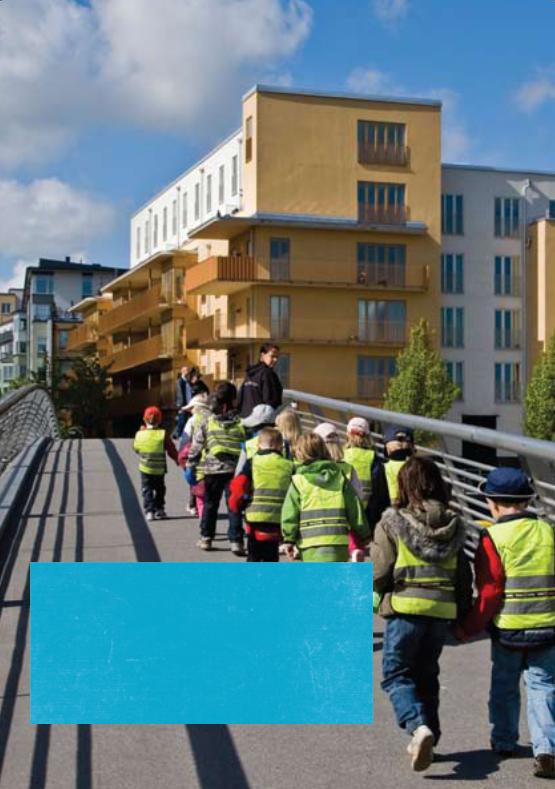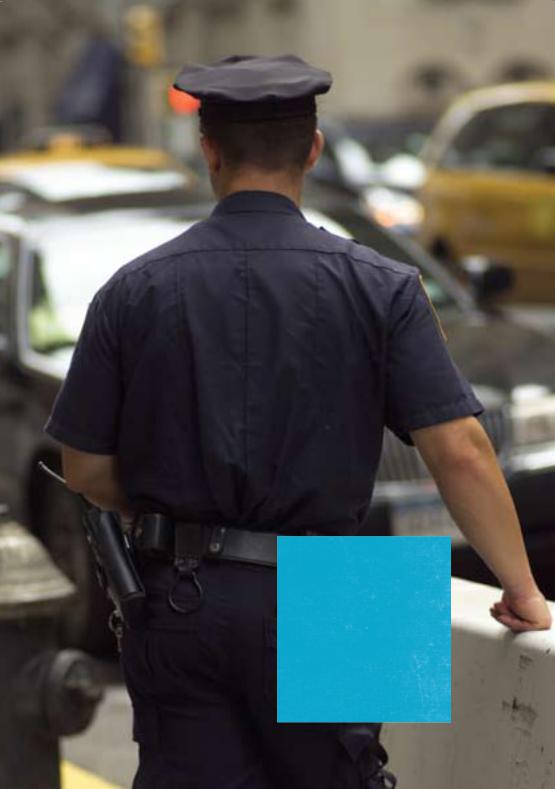
Программа Консерваторов
.pdf
Sweden
Since the free schools programme was established in Sweden, over 1,000 new schools have opened. They have been founded by foundations, charities and others – and they have attracted pupils by offering better discipline and higher
standards. Because any parent can take the money the Swedish Government spends on their child’s education and choose the school they want, standards have risen across the board as every school does its best to satisfy parents.

change society | raise standards in schools
Raise standards in schools
We will improve standards for all pupils and close the attainment gap between the richest and poorest. We will enhance the prestige and quality of the teaching profession, and give heads and teachers tough new powers of discipline. We will restore rigour to the curriculum and exam system and give every parent access to a good school.
Improving our school system is the most important thing we can do to make opportunity more equal and address our declining social mobility. But Britain is slipping down the world league tables in reading, Maths and Science, and violence in the classroom is a serious problem. We are falling behind other countries, and there is a growing gap between the richest and the poorest. We can’t go on like this, for the sake of the next generations.
A Conservative government will give many more children access to the kind of education that is currently only available to the well-off: safe classrooms, talented and specialist teachers, access to the best curriculum and exams, and smaller schools with smaller class sizes with teachers who know the children’s names.
Better teachers and tougher discipline
The single most important thing for a good education is for every child to have access to a good teacher. We will take steps to enhance
the status of the teaching profession and ensure it attracts the best people. Schools – especially
struggling ones – must be able to attract the best teachers and subject specialists, so we will give all head teachers the power to pay good teachers more.
We will expand Teach First and introduce two new programmes – Teach Now, for people looking to change career, and Troops to Teachers, for ex-service personnel – to get experienced, high-quality people into the profession.
We will make it easier for teachers to deal with violent incidents and remove disruptive pupils or items from the classroom. We believe heads are best placed to improve behaviour, which is why we will stop them being overruled by bureaucrats on exclusions.
To raise the status of teaching and toughen school discipline further, we will:
•raise the entry requirement for taxpayerfunded primary school teacher training;
•expect new graduates to have at least a
2:2 in their degree in order to qualify for state-funded training;
51

change society | raise standards in schools
•pay the student loan repayments for top Maths and Science graduates for as long as they remain teachers, by redirecting some of the current teacher training budget;
•give teachers the strongest possible protection from false accusations; and,
•reinforce powers of discipline by strengthening home-school behaviour contracts.
A rigorous curriculum and exam system
Every child who is capable of reading should be doing so after two years in primary school. To make this happen, we will promote the teaching of systematic synthetic phonics and ensure that teachers are properly trained to teach using this method. To provide parents with the reassurance they need that their child is making progress, we will establish a simple reading test at the age of six.
We will reform the National Curriculum so that it is more challenging and based on evidence about what knowledge can be mastered by children at different ages. We will ensure that the primary curriculum is organised around subjects like Maths, Science and History.
We will encourage setting so those who are struggling get extra help and the most able are stretched.
Under Labour, the exam system has become devalued. We will ensure that our exam system is measured against the most rigorous systems in the world. We will keep Key Stage 2 tests and league tables. We will reform them to make them more rigorous. We will make other exams more robust by giving universities
and academics more say over their form and content. We want to develop proper vocational and technical education that engages young people and meets the needs of modern business. So we will establish Technical Academies across England, starting in at least twelve cities.
People expect to be able to make choices about the services they use, based on robust information about the quality on offer. So a Conservative government will reform school league tables so that schools can demonstrate they are stretching the most able and raising the attainment of the less able.
To improve school standards further, we will:
•allow all state schools the freedom to offer the same high quality international exams that private schools offer – including giving every pupil the chance to study separate sciences at GCSE;
•create 20,000 additional young apprenticeships;
•allow schools and colleges to offer workplace training;
52

change society | raise standards in schools
•publish all performance data currently kept secret by the Department for Children, Schools and Families; and,
•establish a free online database of exam papers and marking schemes.
Give every parent access to a good school
Drawing on the experience of the Swedish school reforms and the charter school movement in the United States, we will break down barriers to entry so that any good education provider can set up a new Academy school. Our schools revolution will create a new generation of good small schools with smaller class sizes and high standards of discipline.
Our school reform programme is a major part of our anti-poverty strategy, which is why
our first task will be to establish new Academy schools in the most deprived areas of the country. They will be beacons of excellence in areas where school standards are unacceptably low.
We want every child to benefit from our reforms. So all existing schools will have the chance to achieve Academy status, with ‘outstanding’ schools pre-approved, and we will extend the Academy programme to primary schools.
Education’s real power lies in its ability to transform life chances, but we can’t go on
giving the poorest children the worst education. That is why we will introduce a pupil premium – extra funding for children from disadvantaged backgrounds.
The most vulnerable children deserve the very highest quality of care, so we will call a moratorium on the ideologically-driven closure
of special schools. We will end the bias towards the inclusion of children with special needs in mainstream schools.
People have been far too ready to excuse failure in schools. We will ensure that the schools inspectorate Ofsted adopts a more rigorous and targeted inspection regime, reporting on performance only in the core areas related to teaching and learning. And any school that is in special measures for more than a year will be taken over immediately by a successful Academy provider. To give parents better access to a good school, we will:
•give parents the power to save local schools threatened by closure, allowing communities the chance to take over and run good small schools;
•make sure Academies have the freedoms that helped to make them so successful in the first place; and,
•ensure failing schools are inspected more often – with the best schools visited less frequently.
53

New York
New York shows that it is possible to get a grip and cut crime. Over the past twenty years, serious crime in New York has fallen by 80 per cent, thanks to proactive community-based policing and the intelligent use of new technologies and crime data.

change society | fight back against crime
Fight back against crime
We will fight back against the crime and anti-social behaviour that blights our communities. We will take steps to reduce the causes of crime, like poverty and broken families. We will put the criminal justice system on the side of responsible citizens, take tougher measures against knife
criminals and crack down on the binge-drinking that leads to violence. We will cut paperwork to get police out on the street and give people democratic control over local policing. We will introduce honesty in sentencing and pay voluntary and private providers to reduce re-offending.
Recorded violent crime against the person has risen sharply under Labour, yet police officers spend more time on paperwork than they do out on patrol. Labour’s obsession with bureaucratic targets and box-ticking is hindering the fight against crime. Their string of broken promises has undermined people’s trust. We can’t go
on with the police filling in forms instead of fighting crime.
A Conservative government will help to mend our broken society – by cracking down on drinkand drug-fuelled violence, tackling re-offending, and intervening early to stop young people getting onto the conveyor belt to crime – in order to reduce the causes of crime and anti-social behaviour.
We will rebuild confidence in the criminal justice system so that people know it is on the side of victims and working for law-abiding people, not criminals. And we will reform the police, giving them back their professional discretion – getting them out of police stations and onto the street, fighting and preventing
crime – in return for making them truly accountable to the people they serve.
Targeted measures to reduce the causes of crime
Under Labour’s lax licensing regime, drink-fuelled violence and disorder are a blight on many communities. We will overhaul the Licensing Act to give local authorities and
the police much stronger powers to remove licences from, or refuse to grant licences to, any premises that are causing problems.
In addition, we will:
•allow councils and the police to shut down permanently any shop or bar found persistently selling alcohol to children;
•double the maximum fine for under-age alcohol sales to £20,000;
•raise taxes on those drinks linked to antisocial drinking, while abolishing Labour’s new ‘cider tax’ on ordinary drinkers;
55

change society | fight back against crime
•ban off-licences and supermarkets from selling alcohol below cost price; and,
•permit local councils to charge more for latenight licences to pay for additional policing.
We recognise the need for criminal sanctions like ASBOs and fixed penalty notices, but they are blunt instruments that often fail their purpose of deterring people from committing more crime. We will introduce a series
of early intervention measures, including grounding orders, to allow the police to use instant sanctions to deal with anti-social behaviour without criminalising young people unnecessarily.
Put the criminal justice system on the side of the public
Today, almost four out of every five people found guilty of a knife crime escape jail. We have to send a serious, unambiguous message that carrying a knife is totally unacceptable, so we will make it clear that anyone convicted of a knife crime can expect to face a prison sentence. We will introduce mobile knife scanners on streets and public transport, and extend the length of custodial sentences that can be awarded in a Magistrates’ Court from six to twelve months.
Our criminal justice system often lets down the victims of crime, so we will ensure that victims and their families are better informed
about the progress of criminal proceedings and release of offenders. So that the public can be confident their views are accounted for in deciding sentences, we will examine the case for greater Parliamentary scrutiny of sentencing guidelines. We will carry out a
fundamental review of legal aid to make it work more efficiently, and examine ways of bringing in alternative sources of funding.
We will change the law so that anyone acting reasonably to stop a crime or apprehend a criminal is not arrested or prosecuted, and we will give householders greater legal protection if they have to defend themselves against intruders in their homes.
We will implement the Prisoners’ Earnings Act 1996 to allow deductions from the earnings
of prisoners in properly paid work to be paid into the Victims’ Fund. We will use this Fund to deliver up to fifteen new rape crisis centres and give existing rape crisis centres stable, long-term funding. To help stop sexual violence before it occurs, we will ensure that the school curriculum includes teaching young people about sexual consent.
Reform the police
The police should be focusing on police work, not paperwork. A Conservative government will reduce the amount of paperwork that the police have to deal with, starting by scrapping the stop form entirely and reducing the burden
56

change society | fight back against crime
of stop and search procedures. Any search will still be recorded but by an officer radioing in, rather than filling in paperwork. To allow the police to focus on fighting crime, we will:
•amend the health and safety laws that stand in the way of common sense policing;
•give police the power to identify offenders in order to protect the public and prevent crime;
•return charging discretion to the police for minor offences; and,
•process criminals more quickly by videolinking custody cells and courts.
Policing relies on consent. People want to know that the police are listening to them, and the police want to be able to focus on community priorities, not ticking boxes. We will replace the existing, invisible and unaccountable police authorities and make the police accountable to a directly-elected individual who will set policing priorities for local communities. They will be responsible
for setting the budget and the strategy for local police forces, with the police retaining their operational independence.
Giving people democratic control over policing priorities is a huge step forward in the empowerment of local communities, and we will go further by giving people the information they need to challenge their neighbourhood police teams to cut crime.
We will oblige the police to publish detailed local crime data statistics every month, in an open and standardised format.
Extremists, serious criminals and others find our borders far too easy to penetrate. That is why we will create a dedicated Border Police Force, as part of a refocused Serious Organised Crime Agency, to enhance national security, improve immigration controls, and crack down on the trafficking of people, weapons and drugs. We will work with police forces to strengthen arrangements to deal with serious crime and other cross-boundary policing challenges, and extend collaboration between forces to deliver better value for money.
Prisons with a purpose
In the last three years, 80,000 criminals have been released early from prison because the Government failed to build enough places.
We are determined that early release will not be introduced again, so we will redevelop the prison estate and increase capacity as necessary to stop it. Under Labour, the number of
foreign criminals in our prisons has more than doubled. We will extend early deportation of foreign national prisoners to reduce further the pressure on our prison population.
Many people feel that sentencing in Britain is dishonest and misleading. So we will introduce a system where the courts can
specify minimum and maximum sentences for
57

change society | fight back against crime
certain offenders. These prisoners will only be able to leave jail after their minimum sentence is served by having earned their release, not simply by right.
At the moment, many prisoners leave jail and lapse back into a life of drink, drugs and re-offending. We will never bring our crime rate down or start to reduce the costs of crime until we properly rehabilitate ex-prisoners.
So, with a Conservative government, when offenders leave prison, they will be trained and rehabilitated by private and voluntary sector providers, under supervision. We will use the same approach that lies behind our welfare reform plans – payment by results – to cut re-offending, with organisations paid using savings made in the criminal justice system from the resulting lower levels of crime.
Drug and alcohol addiction are behind many of the crimes that are committed on our streets, but the treatment that too many addicts receive just maintains their habits. We will give courts the power to use abstinence-based Drug Rehabilitation Orders to help offenders kick drugs once and for all. We will introduce a system of temporary bans on new ‘legal highs’ while health issues are considered by independent experts.
To reform our system of rehabilitation further, we will:
•apply our payment by results reforms to the youth justice system;
•engage with specialist organisations to provide education, mentoring and drug rehabilitation programmes to help young offenders go straight; and,
•pilot a scheme to create Prison and Rehabilitation Trusts so that just one organisation is responsible for helping to stop a criminal re-offending.
58

59
